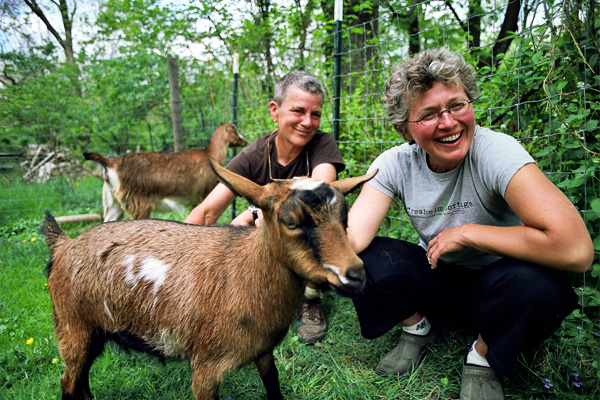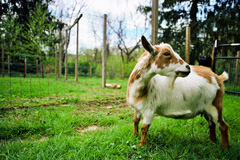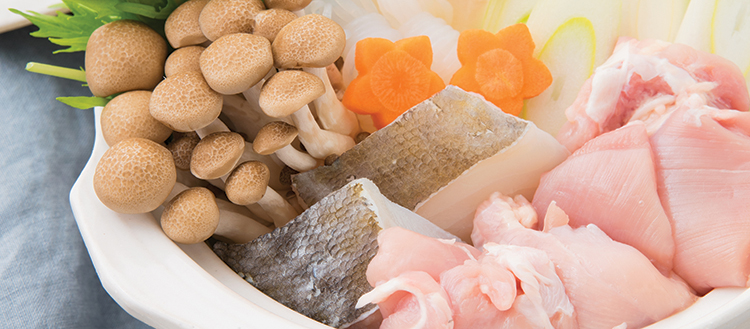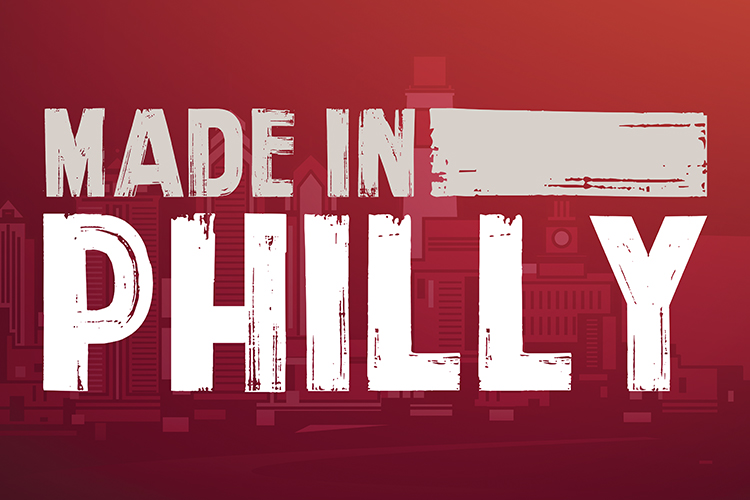story by Dana Henry | photo by Albert YeeLaurie Jenkins, owner of Shady Apple Goats Farms, dreams of having many goats and growing her own hay for rotational grazing. While her backyard dairy farm, nestled behind a busy suburban street in Flourtown, may not offer the expansive landscape Jenkins desires, it does provide a resource uncommon to most agriculture operations: neighbors. “I love neighbors,” she says. “Lots of neighbors support us, even if it just means buying a dozen eggs every week.”
Jenkins, a midwife turned school nurse, operates the farm with her partner, Lisa McCurdy, a carpenter who builds and maintains the farm’s infrastructure. The two have Nigerian Dwarf goats and a LaMancha goat, raise chickens, keep bees and grow vegetables. Their backyard barn has a kitchen where Jenkins makes signature cheeses from her goats’ milk as well as milk purchased from nearby sheep and cow farms. She also teaches cheese-making workshops in the space, and the pair makes honey, soaps and birdhouses on the premises. With such a busy schedule, Jenkins and McCurdy are thankful for the neighborhood support. During birthing season, a neighbor who works from home checks on baby goats and assists with nursing. And of the 35 members in the farm’s cheese Community Supported Agriculture program, the majority is neighbors.
Like many urban farms, Shady Apple Goats began as a vegetable patch. Jenkins adored her grandmother’s rural North Carolina farm, which she often visited as a child, but she never envisioned herself as a farmer. As the couple began to grow more and more vegetables, however, their yard in Mount Airy proved too small. In 2006, they moved across the city boundary to Flourtown. “I was just thinking about growing more tomato plants,” Jenkins admits. “We moved here thinking we could finally do what we wanted to do, have a big garden without being isolated or so far away from work.”
Inevitably, Jenkins started thinking about milk. After years coaching mothers about the benefits of breast milk, she was increasingly upset by the “flash-pasteurized dead white liquid” Americans call milk. She hated thinking about how dairy animals were treated and the dairy industry’s growing political influence. They had been buying local milk, but Jenkins wanted to do more. Cows, clearly, were out of the question and full-sized goats, with their physical strength and stubborn temperaments, would be a handful. So she settled on the Nigerian Dwarf goat, typically an exotic pet, which despite their stature—the goats are less than two feet tall—can produce up to eight pounds of milk per day. “For me this was really about milk,” says Jenkins. “The little goats are the perfect urban dairy animal. You don’t need a lot of land, maybe half an acre.”
After two successful breeding seasons, the goats and their babies have become something of a neighborhood fixture. The farm gets regular visits from kids, families, and curious adults walking by. Many are surprised at how productive a suburban backyard can become. But discovery is what makes the location so invaluable. “The other day three groups of people happened to stop by,” Jenkins says. “I like that people can see [the farm]. You don’t have to drive an hour outside the city. If you want a small farm, it can be done.”






